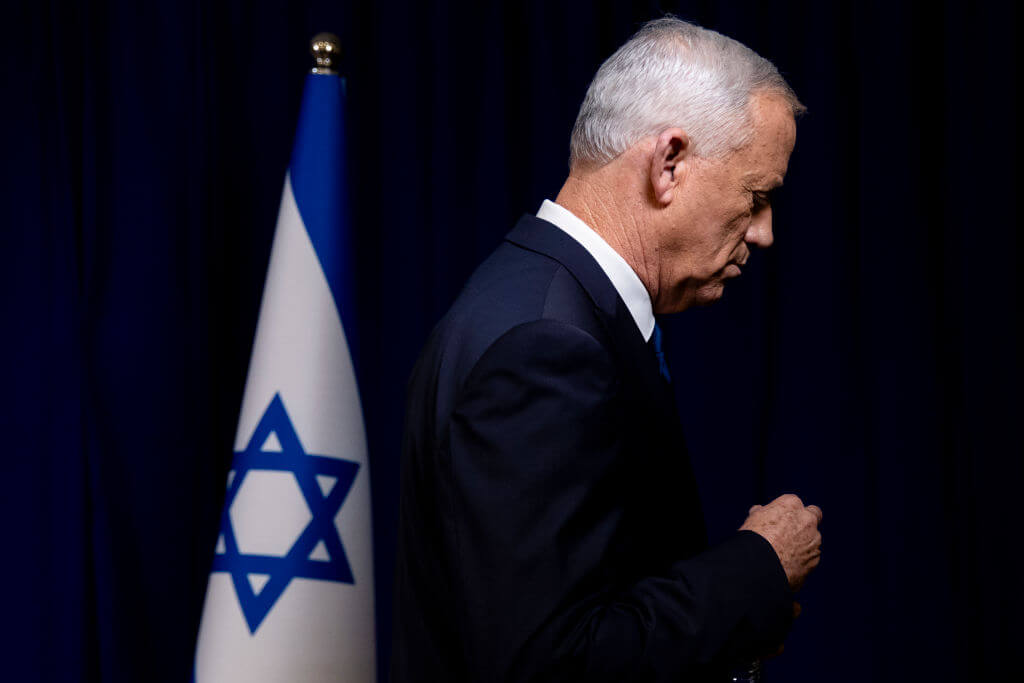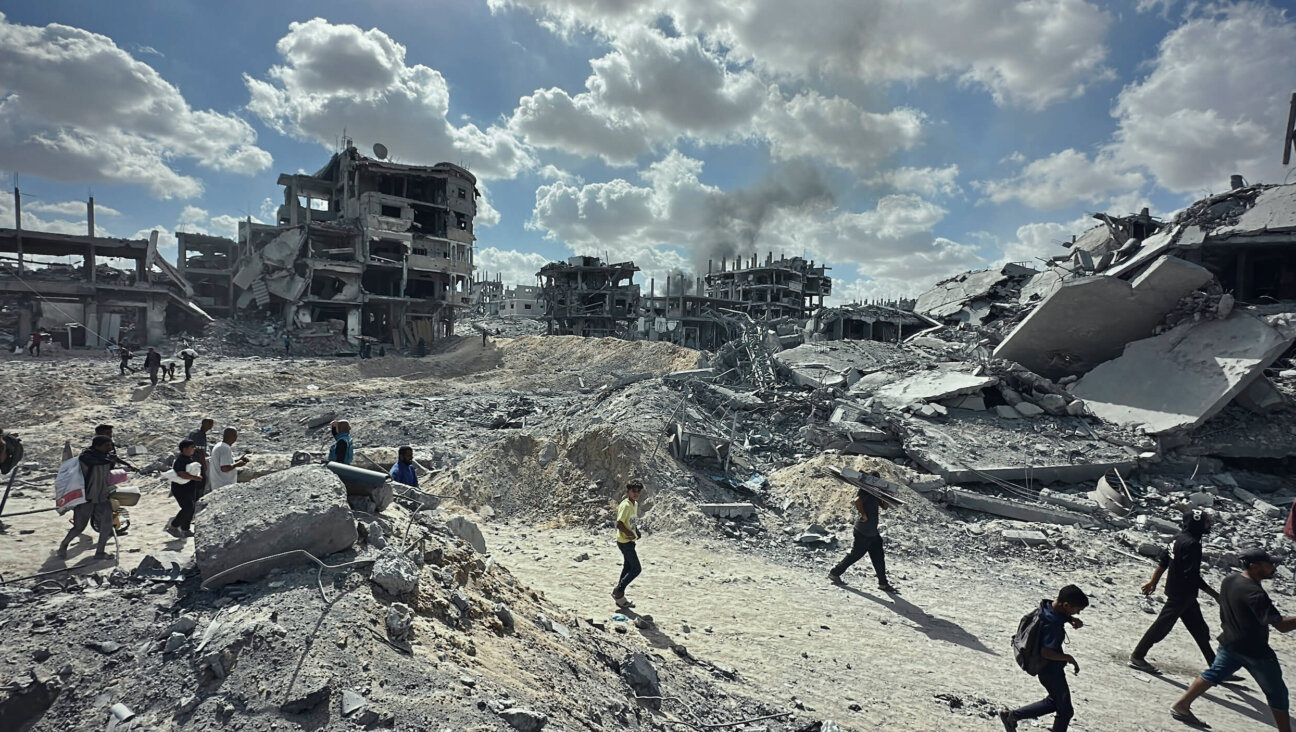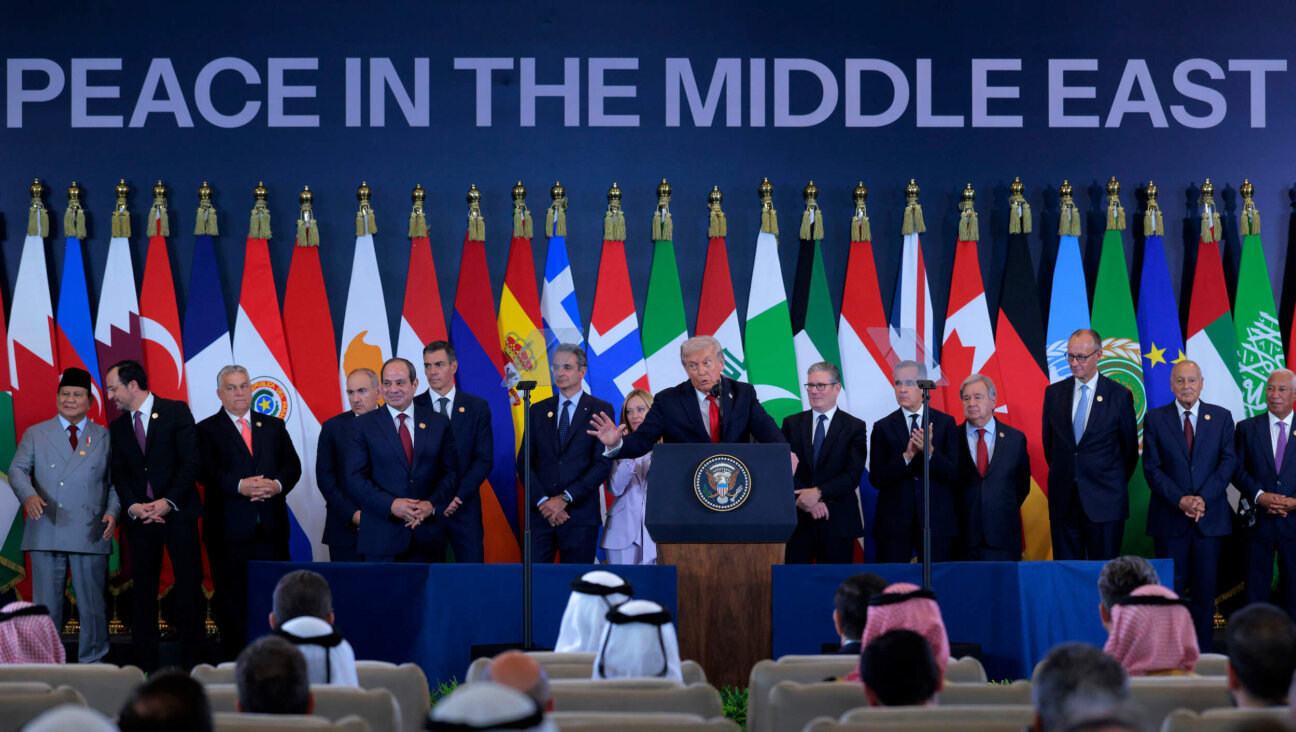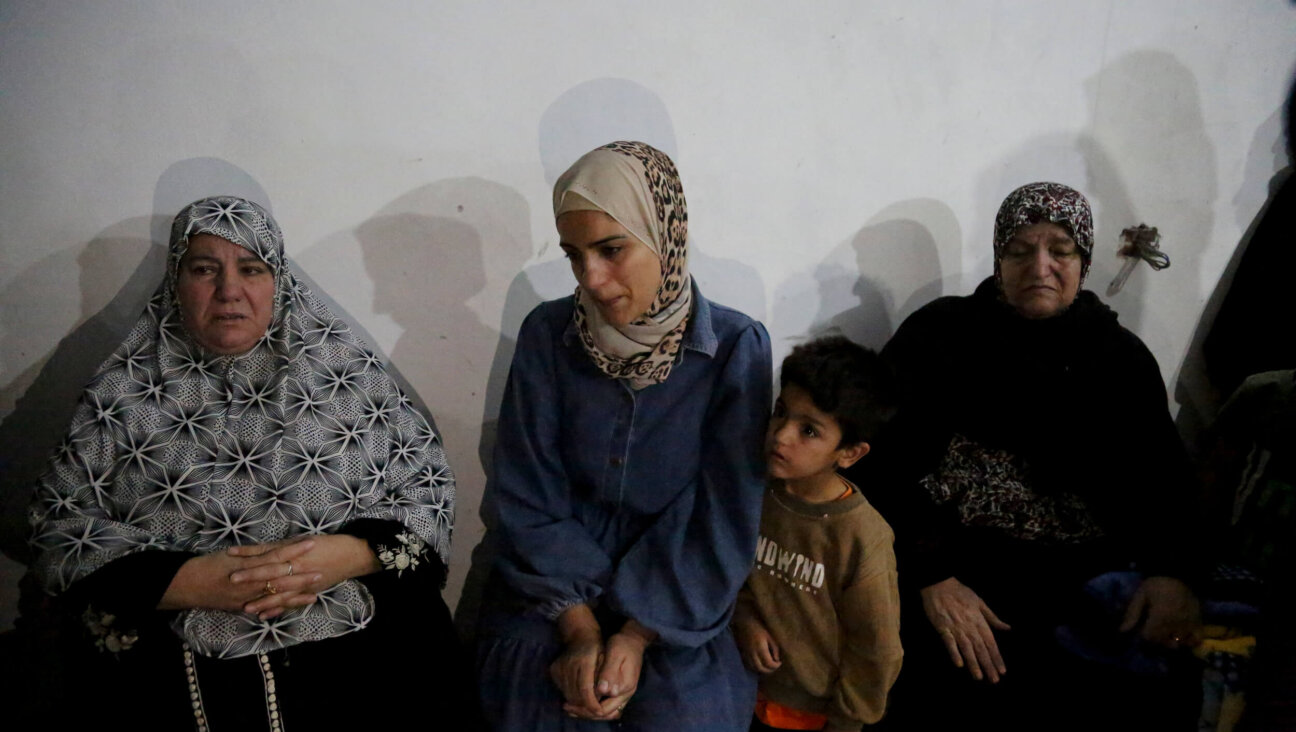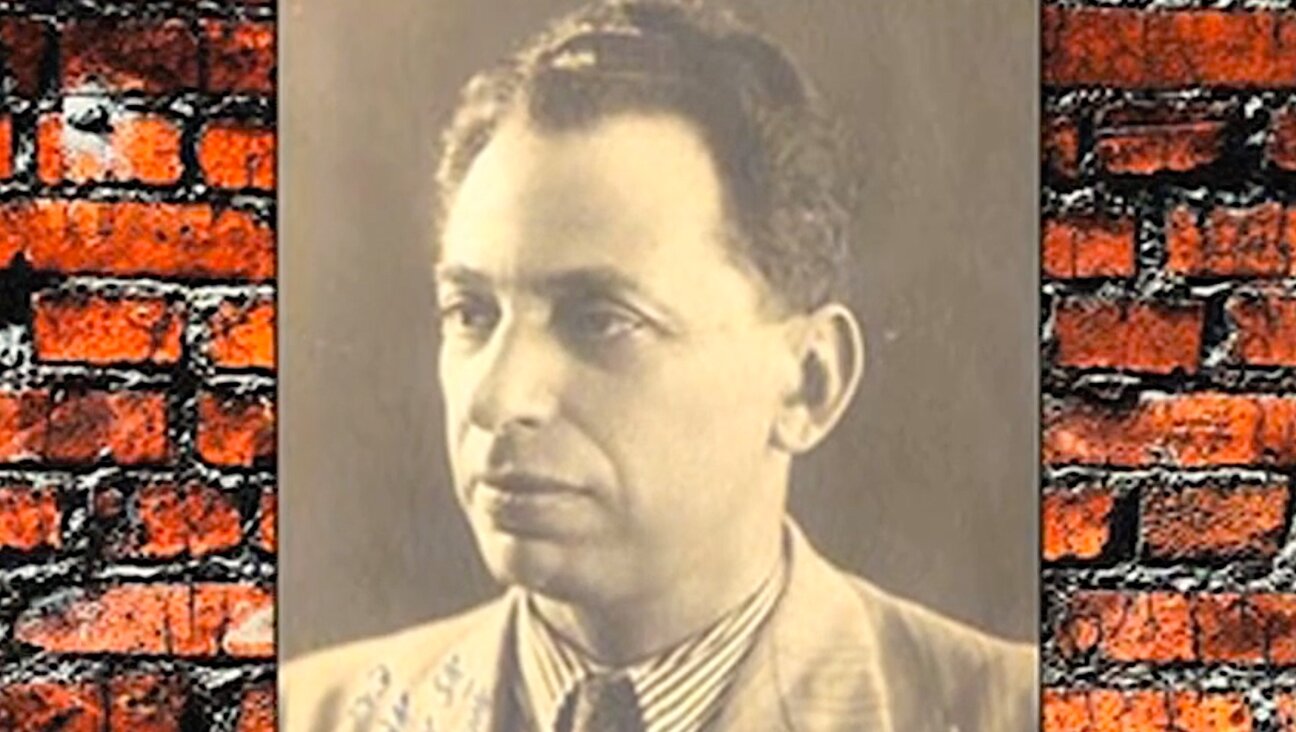Judaicide
Sign up for Forwarding the News, our essential morning briefing with trusted, nonpartisan news and analysis, curated by senior writer Benyamin Cohen.
Allan Mallenbaum of Plainview, N.Y., writes:
“I’ve seen no word that can be used for the phenomenon of suicidal terrorists who target Jews exclusively. It’s unfortunate, outrageous, that we need such a term, but reality dictates the needs of expression.
“Judicide, parallel to suicide, would seem a good choice, but could be misinterpreted to mean the killing of justice — which it surely is….
“Might Judaicide be a better choice? ‘Judaicidal terrorist’ would become a meaningful phrase and honestly descriptive….”
Although I understand the point that Mr. Mallenbaum is making, I can’t say I agree. Do we really need a special word for “suicidal terrorists who target Jews exclusively,” let alone a word like “Judaicide” that could just as well apply to nonsuicidal terrorists who target Jews? (The greatest “Judaicides” in history were, after all, committed by the Nazis.) Moreover, nearly all terrorists target specific groups for political or military reasons: Basques target Spanish, Chechens target Russians, Irish Republicans target Ulster Protestants. Do we need special words, like “Hispanocide” or “Russocide,” for each of them? The “Tamil Tigers” of Ceylon have, in their struggle for independence, vied with Palestinian terror organizations as the main perpetrators of suicide bombing, having committed more than 200 acts of it since 1987 — nearly every one of them directed against Ceylon’s Sinhalese majority. Should we call them “Sinhalocides”?
In general, the subject of suicide bombing has generated a good deal of ideological controversy. Objections to the term “suicide bomber,” particularly in the Israeli-Palestinian and American-Muslim context, have come from both sides. On the one hand, there are those who protest that the term shows covert sympathy for the bomber by emphasizing his self-sacrificial death as opposed to the deaths of his victims, thus focusing on his grievances rather than on the horror of what he has done. Such thinking lay behind ex-White House press secretary Ari Fleischer’s decision (starting with an April 2002 attack in Jerusalem) to refer to such acts not as “suicide bombings” but as “homicide bombings” — a coinage that, in the American media, was picked up mainly by Fox News.
Others have suggested, for similar reasons, the far stronger “genocide bombings.” Hawaiian political scientist R.J. Rummel, for instance, has maintained that because genocide, as defined by the International Court of Justice, is an act committed “with intent to destroy, in whole or in part (italics mine), a national, ethnical, racial, or religious group,” any Palestinian suicide bombing is genocidal, even if only a few Israelis die in it. Some Jewish media, such as the Internet World Jewish Review, have adopted this suggestion.
On the other hand, Muslim and pro-Arab circles have objected to “suicide bomber” from the opposite extreme: Whereas suicide, they say, is viewed by most people and religious traditions as a confession of failure and an expression of impiety, suicide bombing against infidel occupiers or invaders is a form of istish-had, the Arabic word for becoming a shahid or martyr. Thus, for example, reporting on an incident in Iraq on March 7, the pro-insurgent Web site Albasrah.net told its readers that seven American troops were killed in a “martyrdom bombing” when a “Resistance fighter” drove an explosives-laden car into an American checkpoint east of Baghdad.
“Martyrdom bombing,” needless to say, is not a term that any sane person can accept for blowing up women and children. And yet I do not think that “homicide bombing” or “genocide bombing” is acceptable, either. Quite apart from the fact that — the International Court of Justice notwithstanding — the second of the two is gross hyperbole (referring to a bus bombing in which three or even 23 Israelis die as “genocide” is surely an abuse of language), neither addresses the suicidal nature of the act or distinguishes it from a non-suicidal attack. If we are told that someone committed a “homicide bombing,” how do we know whether he blew himself up with his victims or fled the scene before the bomb went off?
Moreover, “suicide bomber,” far from being a recent coinage, is a term with an extensive history going back to the Japanese kamikaze pilots of World War II. (Kamikaze, which means, literally, “divine wind,” was originally the name given to a typhoon that saved Japan from invasion by a Mongol fleet in the 13th century.) Kamikaze is by now part of the English language, and the fact that it upsets the ideologists at either extreme of the political spectrum is the best sign of its being descriptively neutral.
As for “Judaicide,” although we certainly can refer to Palestinians who kill themselves while blowing up innocent Israelis as “Judaicidal suicide bombers” if we wish, it would be unrealistic to expect the media to make use of such an unwieldy and polemical expression. “Palestinian suicide bomber,” which already tells us all we need to know about such a person’s attitude toward Jews, is quite enough.
Questions for Philologos can be sent to [email protected].


